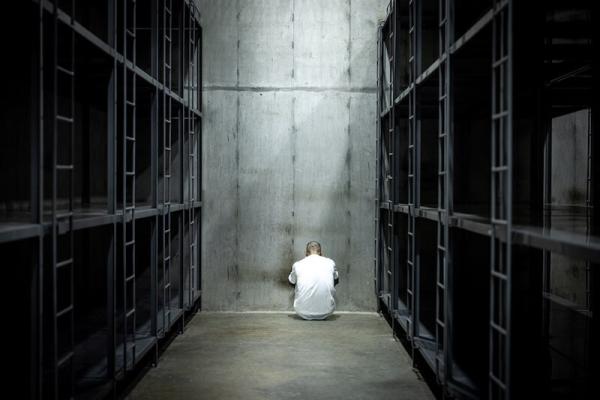Earl Simmons, the rapper better known as DMX, died in White Plains, N.Y., on April 9, a week after suffering a heart attack, according to a statement from his family. He was 50 years old.
Simmons passed away with his family by his side, according to a statement provided to media outlets.
“Earl was a warrior who fought till the very end. He loved his family with all of his heart and we cherish the times we spent with him,” the statement reads. “Earl’s music inspired countless fans across the world and his iconic legacy will live on forever.”
From early in his career, DMX — which stood for Dark Man X — filled his music with theological and spiritual references. His first label release was It’s Dark and Hell Is Hot, followed by Flesh of My Flesh, Blood of My Blood. In 2012 he was ordained as a deacon in his church in Arizona, and in 2016 he announced that God was calling him to become a pastor.
Anthea Butler, associate professor of religious studies at the University of Pennsylvania, said on Twitter that DMX was an icon “of the rap game, but also person not afraid, despite all of his frailties, to call on God regularly.”
She said that the “theology and the highs and lows” of DMX’s life had “spoken to me more than all the systematic theology I learned in seminary.”
DMX was known for his gruff vocals and tough delivery, and popularly known for songs like “Ruff Ryders’ Anthem,” and “Party Up (Up In Here).” DMX’s songs told the stories of his life, often combining conceptions of the secular and sacred.
“What we seeing is: The streets, the cops, the system, harassment. The options, get shot, go to jail, or getcha ass kicked,” DMX rapped on the song “Who We Be.” “The silence, the dark, the mind, so fragile. The wish, that the streets, would have took you, when they had you. The days, the months, the years, despair. One night on my knees, here it comes, the prayer.”
DMX struggled with addiction throughout his life. He told rapper Talib Kweli that he was 14 years old when another rapper tricked him into smoking cocaine. In a profile for GQ, “Dark Man X: The Resurrection,” Mark Anthony Green wrote that “[as] a devout believer in God, DMX looks at the bad, all of it, as testimony.”
In 2020, DMX led an Instagram Live Bible study of Ecclesiastes, with over 14,000 people tuning into the stream, according to CBS News.
“There is a season for everything and a time for every matter under the heavens,” DMX read, quoting Ecclesiastes 3 with his iconic and passionate voice.
Steve Patton, who writes and speaks on hip hop and Christianity, told Sojourners over text that the way DMX spoke about his faith was “boldly unique” in hip hop.
“[DMX] spoke specifically about Jesus … to talk positively, inquisitively, passionately, reverently, and even at times desperately about Jesus … wasn’t new to Black ‘secular’ music but that was reserved for R&B acts or if you rapped and you spoke about Jesus at award shows,” Patton said. “[When] you couple that with the aggression he also used in his music, it was subversive and game changing … I don’t think there is a Chance the Rapper speaking so confidently about Jesus and his need for Jesus without [DMX songs] ‘Prayer’ or ‘Lord Give Me a Sign.’”
Patton highlighted DMX’s willingness to speak openly about his faith and his “struggles.” Patton said that DMX’s music showed him and others how to channel passion.
“I think that’s what we all loved about his music aside from the faith aspect,” Patton wrote. “He taught us how to channel our anger, our passion, our aggression but showed us all we were still human in it all. He reflected the complexity of the human condition in a way that very few have done throughout music history.”
DMX is survived by his mother, siblings, his 15 children, and their mothers.
Got something to say about what you're reading? We value your feedback!







